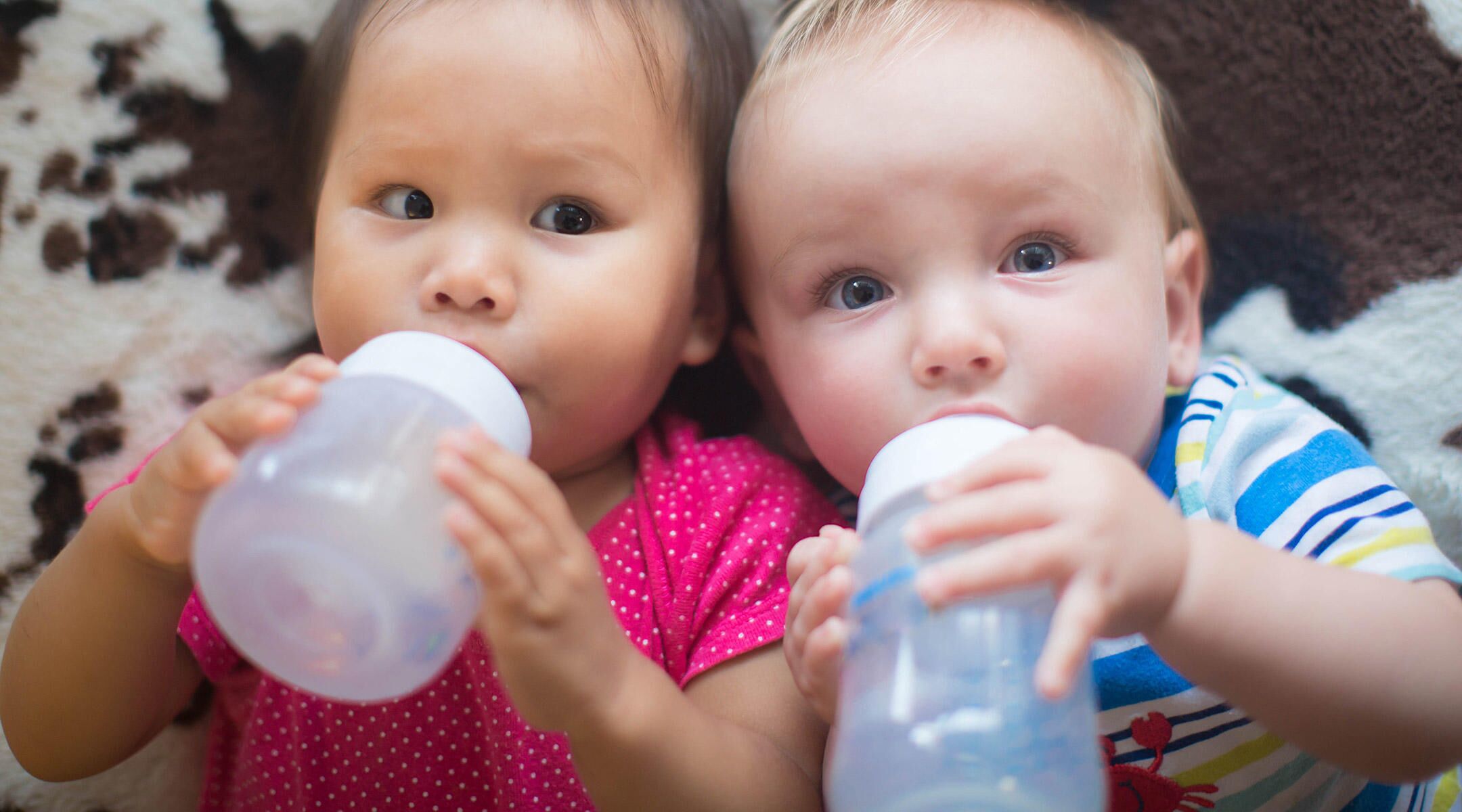 Source: bing.com
Source: bing.comOne of the most exciting milestones for a parent and a baby is when the baby starts holding their own bottle. It is an indication that your little one is growing up and becoming more independent. While it may seem like a small feat, holding their bottle requires a fair amount of muscle strength and coordination, so it’s a big accomplishment for them.
Table of Contents
When Do Babies Start Holding Their Own Bottle?
Babies generally start holding their own bottle when they are between 6 and 10 months old. However, this can vary from child to child. Some babies may start earlier or later than others, and that’s perfectly normal.
Why is Holding Their Own Bottle Important for Baby Development?
Holding their own bottle is an important milestone in a baby’s development because it helps promote their independence and self-feeding skills. It also helps to develop their hand-eye coordination and fine motor skills.
When a baby is holding their own bottle, they are actively using their muscles to support the weight of the bottle and steer it towards their mouth. This strengthens their arm, hand, and neck muscles, which are essential for other developmental milestones such as crawling, standing, and walking.
How Can You Encourage Your Baby to Hold Their Own Bottle?
While some babies may start holding their own bottle naturally, some may need a little encouragement. Here are some tips to help your baby learn to hold their own bottle:
- Start by placing your baby in a supportive position, such as a bouncer, high chair, or on your lap.
- Hold the bottle in place, but don’t grip it too tightly. This will allow your baby to learn how to hold onto the bottle themselves.
- Encourage your baby to grasp the bottle with both hands and guide it towards their mouth.
- Be patient and give your baby plenty of time to practice. Remember, every baby develops at their own pace.
What Should You Do If Your Baby Isn’t Holding Their Own Bottle?
If your baby is around 10 months old and isn’t showing any interest in holding their own bottle, don’t panic. Some babies take longer than others to reach this milestone. However, if you’re concerned about your baby’s development, talk to your pediatrician. They can assess your baby’s muscle strength and offer suggestions for activities to help promote their development.
Conclusion
Holding their own bottle is a big milestone for babies that promotes independence, self-feeding skills, hand-eye coordination, and fine motor skills. While every baby develops at their own pace, you can encourage your baby to hold their own bottle by placing them in a supportive position, holding the bottle in place, and giving them plenty of time to practice. If you have concerns about your baby’s development, talk to your pediatrician.
Frequently Asked Questions
- What age do babies start holding their own bottle? Babies generally start holding their own bottle when they are between 6 and 10 months old.
- Why is holding their own bottle important for baby development? Holding their own bottle helps promote independence, self-feeding skills, hand-eye coordination, and fine motor skills.
- How can I encourage my baby to hold their own bottle? You can encourage your baby to hold their own bottle by placing them in a supportive position, holding the bottle in place, and giving them plenty of time to practice.
- What should I do if my baby isn’t holding their own bottle? If your baby is around 10 months old and isn’t showing any interest in holding their own bottle, talk to your pediatrician. They can assess your baby’s muscle strength and offer suggestions for activities to help promote their development.
- What other developmental milestones should I look out for? Other developmental milestones include sitting up, crawling, standing, and walking.